Mississippi Today
Brett Favre says the welfare agency didn’t help satisfy his volleyball pledge, but Aaron Rodgers, Jimmy Buffett and others did
Brett Favre says the welfare agency didn’t help satisfy his volleyball pledge, but Aaron Rodgers, Jimmy Buffett and others did
NFL legend Brett Favre says Mississippi’s welfare department didn’t help satisfy his pledge to fund a new volleyball stadium at University of Southern Mississippi.
But current Green Bay Packers quarterback Aaron Rodgers, a charity started by Margaritaville-songwriter Jimmy Buffett, and former Gov. Phil Bryant’s political action committee did.
Favre has made national news in recent years for tapping his home state’s welfare agency to raise funds for the stadium, but an email Mississippi Today recently obtained shows he also raised at least $180,000 for the facility from at least four charities. These are organizations that claim to increase economic, educational or workforce opportunities for families in need.
One of the key allegations against Favre in Mississippi’s welfare scandal is that he personally benefited from a scheme to divert federal funds intended to help poor Mississippians to build a volleyball stadium at his alma mater.
Mississippi Department of Human Services, which is suing Favre and dozens of others to recoup the misspent funds, draws this conclusion because, they allege, Favre personally committed funds to the project, so any welfare money used to offset that obligation was a financial benefit to Favre.
The athlete, who also directly received $1.1 million in welfare funds, did personally agree to fundraise or donate just over $1.4 million, according to a never-before-published donor agreement introduced in court this month. The document was signed by Favre, his wife, and University of Southern Mississippi Athletic Foundation President Leigh Breal.
But this guarantee came months after Mississippi Department of Human Services and one of the agency’s subgrantees, nonprofit Mississippi Community Education Center, had already crafted a lease agreement allowing them to funnel $5 million in federal welfare funds to the project.
In Favre’s latest reply to MDHS in early April, his attorneys accuse MDHS of using legal fallacies in its civil charges against Favre.
“MDHS’s theory would effectively place no limits on UFTA (Uniform Voidable Transactions Act) liability—anyone could be sued who could in any way be deemed to have reaped some undefined benefit from a transfer,” Favre’s latest motion reads. “That of course is not the law in Mississippi or anywhere else.”
Since Mississippi Today first uncovered in February of 2020 that officials used welfare money to build the volleyball stadium, the entities involved have not made public a full accounting of who paid for the roughly $8 million facility, which would show who contributed to the project following Favre’s commitment so he didn’t personally have to.
An email recently obtained by Mississippi Today reveals publicly for the first time that, at least by the time initial arrests were made, the following individuals had made contributions towards Favre’s pledge:
- American Family Insurance Dreams Foundation Inc. (6/22/18): $100,000
- Imagine Mississippi Political Action Committee (6/4/18): $2,500
- Anonymous Donor (7/30/18): $150,000
- SFC Charitable Foundation (7/10/18): $33,378
- Brett Favre (8/16/18): $50,000
- Steel Dynamics Foundation (7/9/19): $25,000
- Aaron Rodgers (10/10/19): $10,000
- Howard Deneroff (1/7/20): $500
- Jimmy A. Payne Foundation (1/13/20): $22,000
- Matt Helms (1/24/20): $360,000
Favre attached this email to his most recent court filing, but redacted the donors’ names. Mississippi Today retrieved an unredacted copy, which University of Southern Mississippi should have produced to the news organization in response to a public records request last year, but did not.
The list does not implicate Rodgers, Buffett, or any other private donor in the welfare scheme. But the email serves as a key piece of evidence in Favre’s defense.
The gifts cited total just over $650,000. Documents reflecting the total amount Favre personally contributed towards the project have not been made public, but his lawyer Eric Herschmann told conservative sports podcaster Jason Whitlock in a February interview that Favre donated over a million dollars of his own money to the facility. Also, The Athletic first reported that from 2018 to 2020, the same years Favre had an obligation to fund the volleyball construction, his charity Favre 4 Hope donated nearly $133,000 to USM Athletic Foundation.
In addition to the $5 million in welfare funds that went towards the facility, Nancy New, founder of the nonprofit in charge of spending welfare funds, alleged that former Gov. Bryant directed her to make $1.1 million in payments to Favre to help Favre raise funds for the stadium — an allegation Bryant has denied to the press.
But a spokesperson for the athlete recently confirmed that Favre did not use that money on the facility.
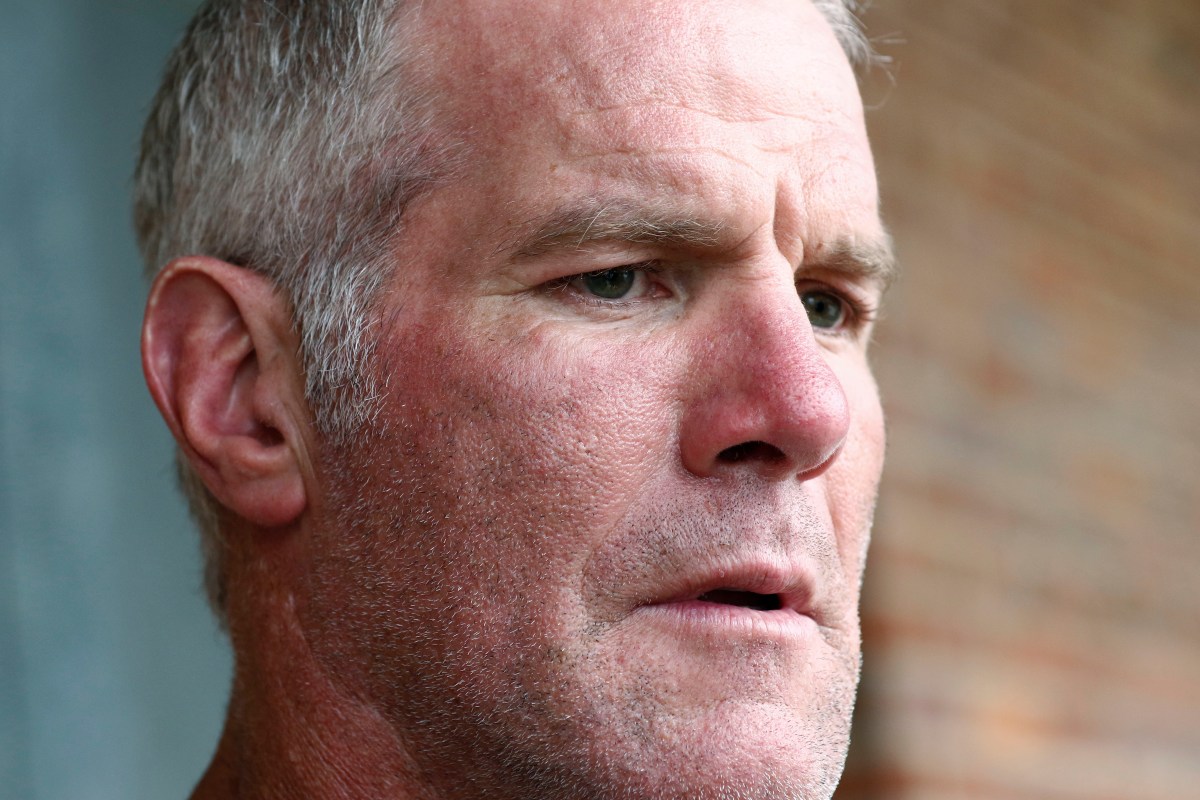
“Brett fulfilled his only obligation to USM. No funds he received from MCEC went towards the wellness center. Brett both solicited donations and often asked individuals or groups to send money to USM instead of paying him for services he provided,” a spokesperson for Favre said in a statement last week.
While a complete and reliable breakdown of the funds used to construct the facility has not been made public, outside counsel for the athletic foundation recently confirmed in an email requested by Favre’s wife Deanna Favre that the Favres “satisfied the obligations of their Donor Agreement by raising or paying the Foundation in excess of the pledged amount of at least $1,406,747.55 for the Volleyball Wellness Center.”
“This includes cash donations given directly by Brett and Deanna Favre and other amounts contributed at the request of Brett and Deanna Favre,” Ridgeland-based attorney Scott Jones wrote in the Mar. 23, 2023 email to Favre’s attorneys.
University of Southern Mississippi has refused to answer several questions from Mississippi Today about the volleyball project, citing litigation.
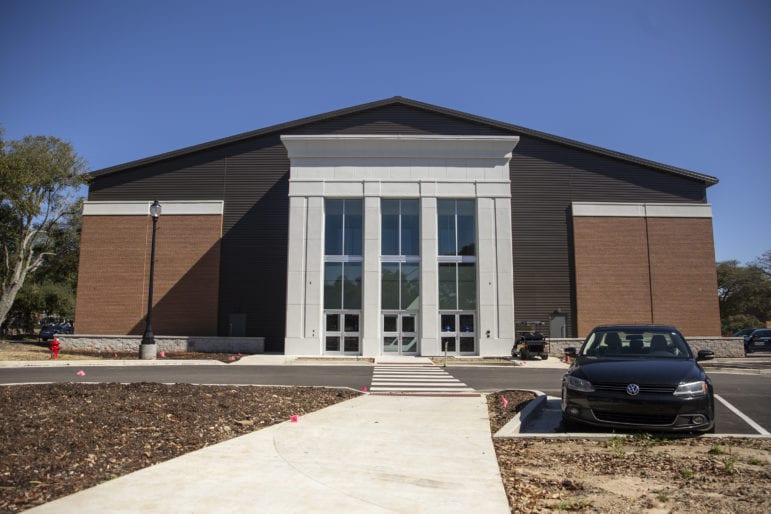
Favre began fundraising for the new volleyball stadium at USM, where his daughter played the sport, in 2017 – no one argues that. What’s in dispute, and belabored in lengthy court motions back and forth, is whether Favre promised to come up with the funding for construction at the outset of the project.
Favre argues in his motion to dismiss the civil suit against him that the $5 million paid in 2017 couldn’t have satisfied his $1.4 million guarantee in 2018 since the payment came before the pledge. MDHS alleges that Favre made a “handshake deal” near the inception in 2017, which is the only reason the university proceeded with the project, meaning he was on the hook for the funding the entire time.

By mid-2017, Favre had supposedly contributed $150,000 towards the volleyball project, according to an April 2017 email from Morrison to then-USM Athletic Director Jon Gilbert. After struggling to secure many more big donors, Gilbert involved nonprofit founder Nancy New, who had already entered at least one lease agreement with USM for the purpose of using grant money to make building renovations on campus – a purchase that has yet to be scrutinized.
“Brett and Deanna have agreed to help with fundraising for the facility,” Gilbert wrote in a July 16, 2017, email to New. “We currently have $1.2 million in hand from a variety of people that have committed to the project … I will find out what Brett’s schedule is Tuesday and coordinate a time he can stop by that works for everyone.”
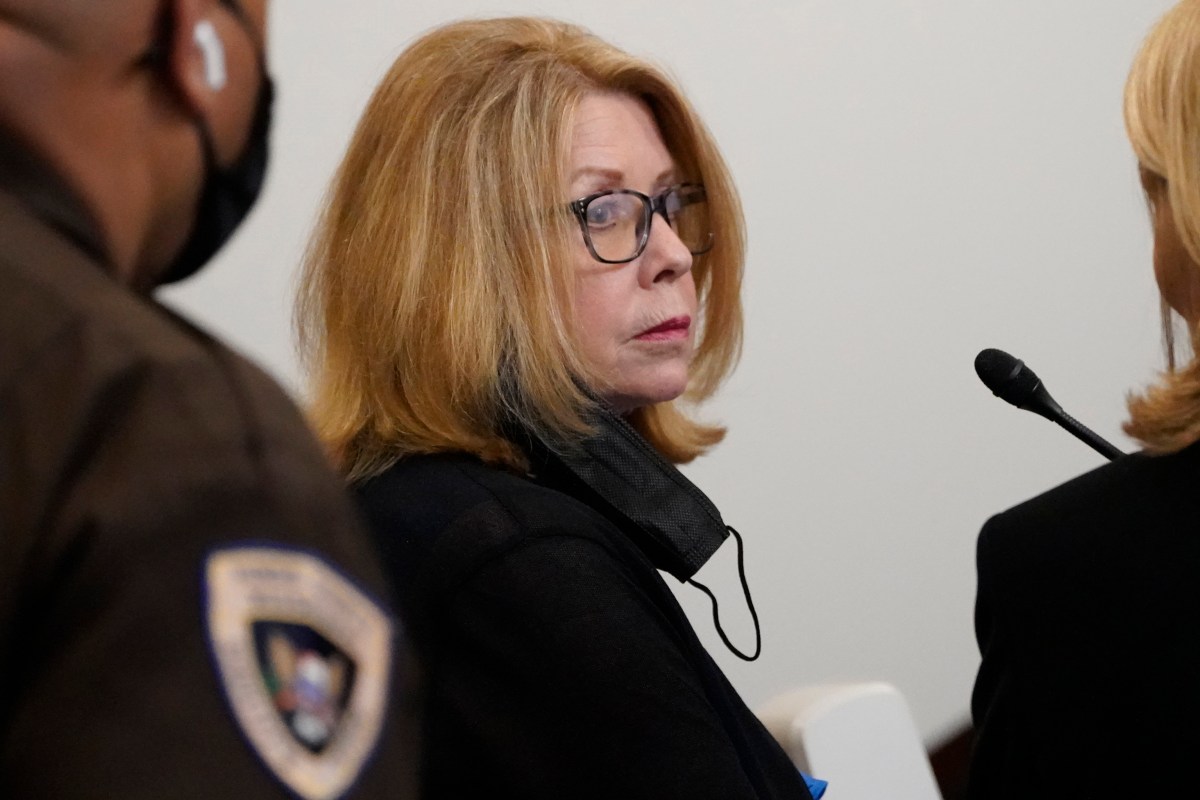
In the days and weeks following, Favre and New discussed by text the challenges in using federal grant funds for the volleyball stadium, since federal law prohibits spending of these dollars on brick-and-mortar construction projects. Favre suggested the nonprofit hire and pay him for marketing services – which are allowed under the federal rules – and that way he could pass the money to the athletic foundation.
“Will the public perception be that I became a spokesperson for various state funded shelters,schools,homes etc….. And was compensated with state money? Or can we keep this confidential,” Favre texted New in a never-before-published text first introduced into court last month.
New responded that only she, her son Zach New and former Mississippi Department of Human Services director John Davis would have information about the payment – a product of the secrecy shrouding the welfare program.
“So if we keep confidential where money came from as well as amount I think this is gonna work,” Favre wrote.
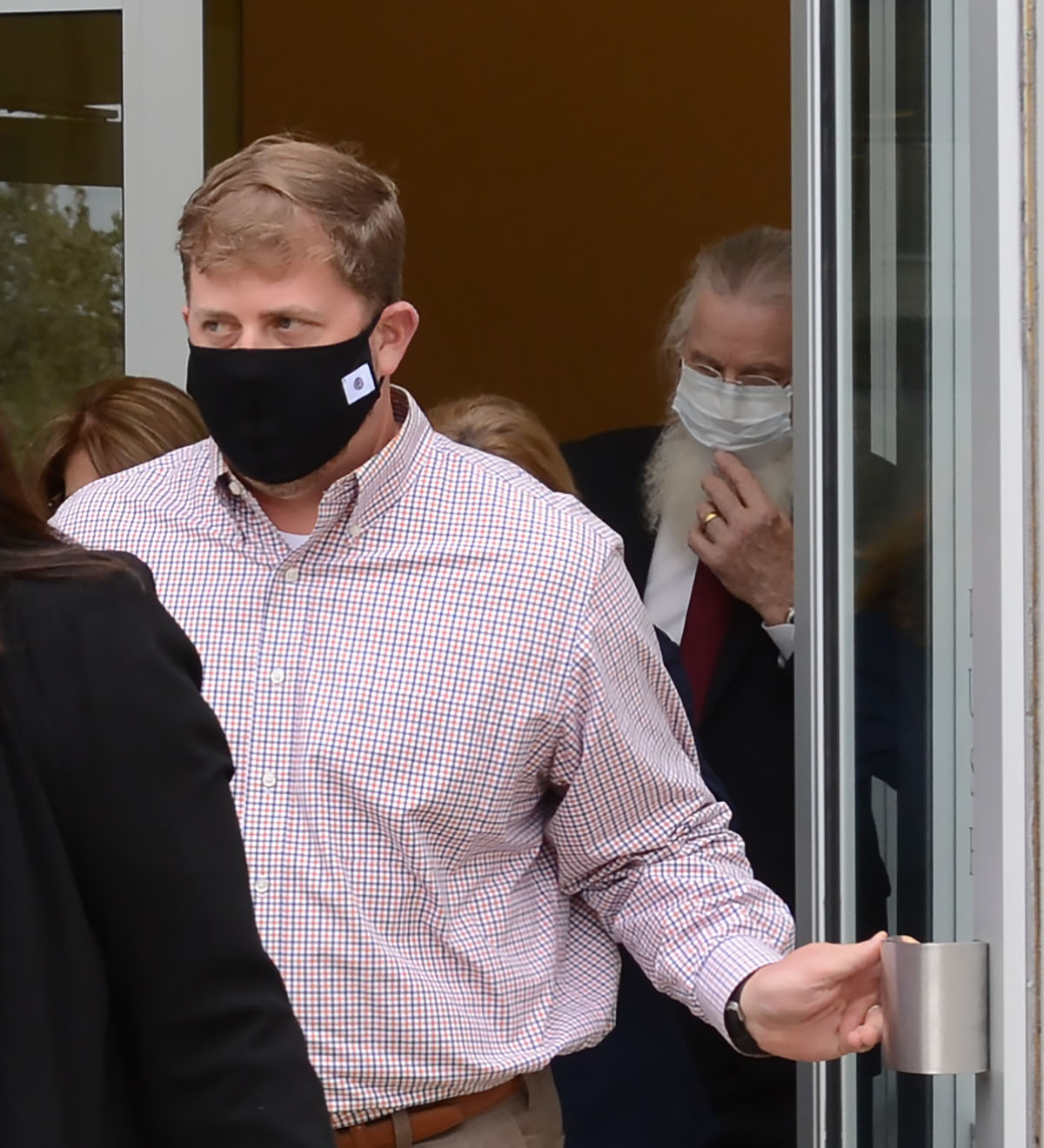
The nonprofit eventually made two $2.5 million payments through a lease agreement with USM Athletic Foundation in November and December of 2017. For this, Zach New pleaded guilty to state charges of defrauding the government. To make the lease appear legit, the nonprofit said it would occupy classrooms inside the stadium, where it would conduct programming for underprivileged people. Later that December, the nonprofit also made the first $500,000 payment directly to Favre under an agreement that he would cut a radio ad for their anti-poverty program.
In the following months, Favre learned that the construction bids had come in much higher than expected, and that USM Athletic Foundation wouldn’t be able to begin building the facility until they could guarantee more funding was coming.
In April of 2018, an email stated that Favre’s original gift of $500,000 towards the volleyball stadium would be reduced to $250,000 after he instructed the university to transfer half to the construction of a beach volleyball arena. (His daughter had moved from the indoor team to the beach team).
In order for work to begin, Favre signed the $1.4 million donor agreement, ensuring that he’d raise or cover the rest of the cost, on May 2, 2018.
About a week later on May 10, New texted Favre, “I am making some progress on our money needs. What amount out of the whole loan that you signed would be most helpful right now? John and I may have a plan!!”
This text appears to show that Favre and New had planned for the nonprofit to contribute towards his guarantee.
On May 17, New texted Favre, “Good news. I have a little money for the ‘project’ – $500,000! Do you want me to send to the Athletic Dept. Or to your foundation.”
New sent the payment in the following weeks to Favre’s for-profit company Favre Enterprises, Inc., according to the State Auditor’s Office.
The text suggests that they both understood the payment to Favre – paid under what was essentially a sponsorship agreement – was ultimately for the purpose of supporting construction at USM.
“While $1,100,000 was paid based on a contract for public appearances, and Favre did record a radio advertisement, the payment was intended, as requested by Bryant, to help Favre raise funds for construction of the Volleyball Facility,” reads New’s October filing in the civil case.
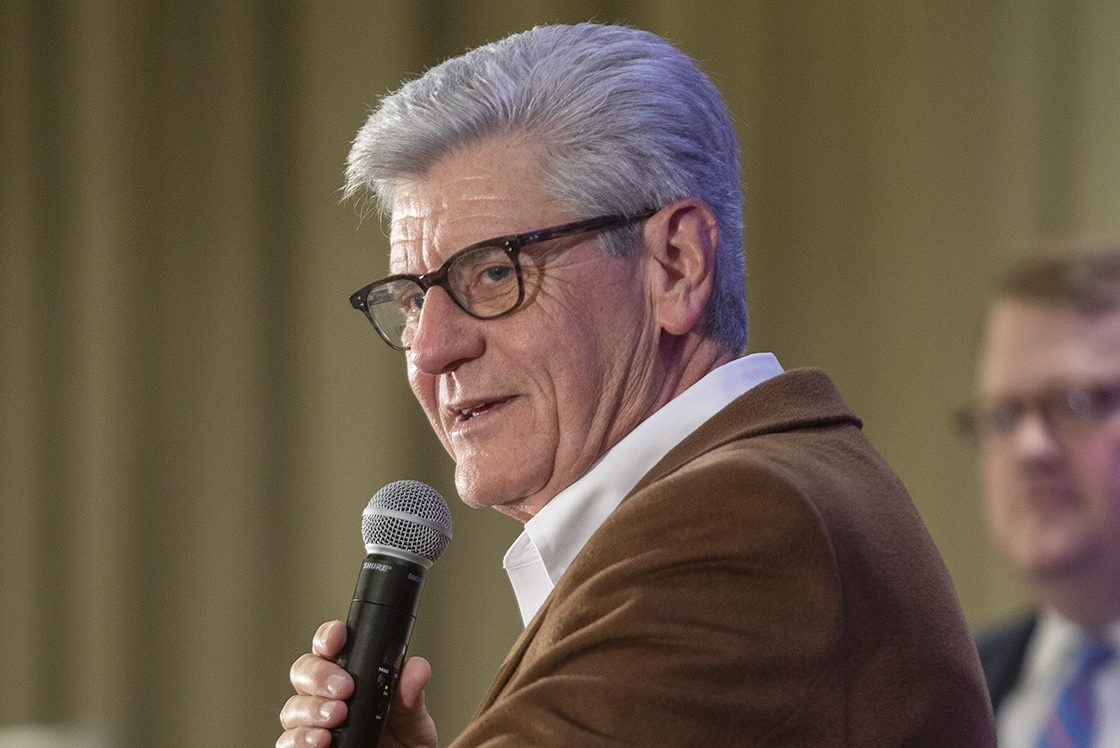
Through his counsel, Bryant has denied the allegation to Mississippi Today. At the point this payment was made, Favre had not yet cut the radio ad.
“Favre knew that this was a sham designed to allow MDHS to cover Favre’s commitment to fund construction of the volleyball facility,” MDHS alleges in its amended complaint.
Despite their plans, Favre didn’t use the money for the alleged purpose he received it, according to his spokesperson’s statement.
Also in June of 2018, Favre secured donations for the facility from American Family Insurance Dreams Foundation Inc. and Bryant’s PAC Imagine Mississippi Political Action Committee.
Bryant was still governor when Imagine Mississippi PAC donated $2,500 to the volleyball project in June of 2018. Bryant started the PAC by closing his campaign-finance account and transferring the bulk of the $1.05 million he had left over to the new organization in 2017 shortly after winning his second term. The PAC’s stated goal is to support conservative candidates and officials. It spent about $220,000 in 2017, $216,000 in 2018, $307,000 in 2019 and $23,000 in 2020. It did not file an annual report for 2021 or 2022 or a notice of termination, according to what is available on the Secretary of State’s Office website.
American Family Insurance Dreams Foundation Inc., which donated $100,000 towards the volleyball stadium, is a nonprofit focused on supporting programs in academic achievement, healthy youth development, economic opportunity, such as job training, and community resilience, including food, housing and daycare.
A spokesperson for the foundation told Mississippi Today that Favre played in its golf tournament for several years, drawing large crowds and helping fundraising efforts for its nonprofit partners. “For his participation, we made charitable contributions to a few select organizations of his choice, including the University of Southern Mississippi. Supporting colleges and universities, including programming that impacts students, aligns to the mission of the American Family Insurance Dreams Foundation.”
The spokesperson did not respond to follow up questions about what programming the foundation thought its gift was supporting.
In July of 2018, Singing For Change Charitable Foundation — a charity founded by Pascagoula-native and USM alum Jimmy Buffett with the slogan, “Turning good vibes into good deeds” — gave $33,378 for the facility. Its website says it gives grants to small, grassroots nonprofits across the country that help people “get back on their feet, back into homes, back to work, find meaningful jobs, become better educated, and thrive according to their definition.” One dollar for every concert ticket Buffett sells on tour goes towards his foundation.
“Our contribution on behalf of student wellness at USM was made in good faith to the University’s foundation,” a spokesperson for SFC Charitable Foundation said in a statement to Mississippi Today. “… When any nonprofit goes astray and mismanages funds, it’s a sad day for those of us in the sector but especially distressing and financially stressful for local organizations handling the fallout. As Jimmy’s tour resumes this spring, we will to continue to support people living on the margins across the U.S.”
An anonymous donor also contributed $150,000 towards the volleyball stadium that month, according to the Morrison email, and Favre himself donated $50,000 the next month.
Despite personally receiving $1.1 million from the nonprofit, Favre continued in the following months and years to lobby welfare officials, other government officials and current Gov. Tate Reeves in an attempt to secure more public funds to satisfy his obligation.
But this never happened: “Zero public funds went towards satisfying this voluntary pledge,” the spokesperson for Favre confirmed for the first time to Mississippi Today recently.
It’s unclear how Favre may have used the $1.1 million he received from MCEC, which he has since repaid to the state. When he spoke to his associates about his debt in the project, the number varied from $1.1 million or $1.2 million in March of 2019 to $1.8 million in September of 2019.
By July of 2019, Davis had been ousted for suspected fraud and Favre was becoming worried.
“Nancy has been awesome to me and has paid 4.5 million for a 7 million dollar facility. And she said it was all gonna be taken care of until this morning,” Favre wrote to his business associate, Jake Vanlandingham, founder of a pharmaceutical startup company called Prevacus, on July 16, 2019. This text was first published by Mississippi Today in its investigative series “The Backchannel.”
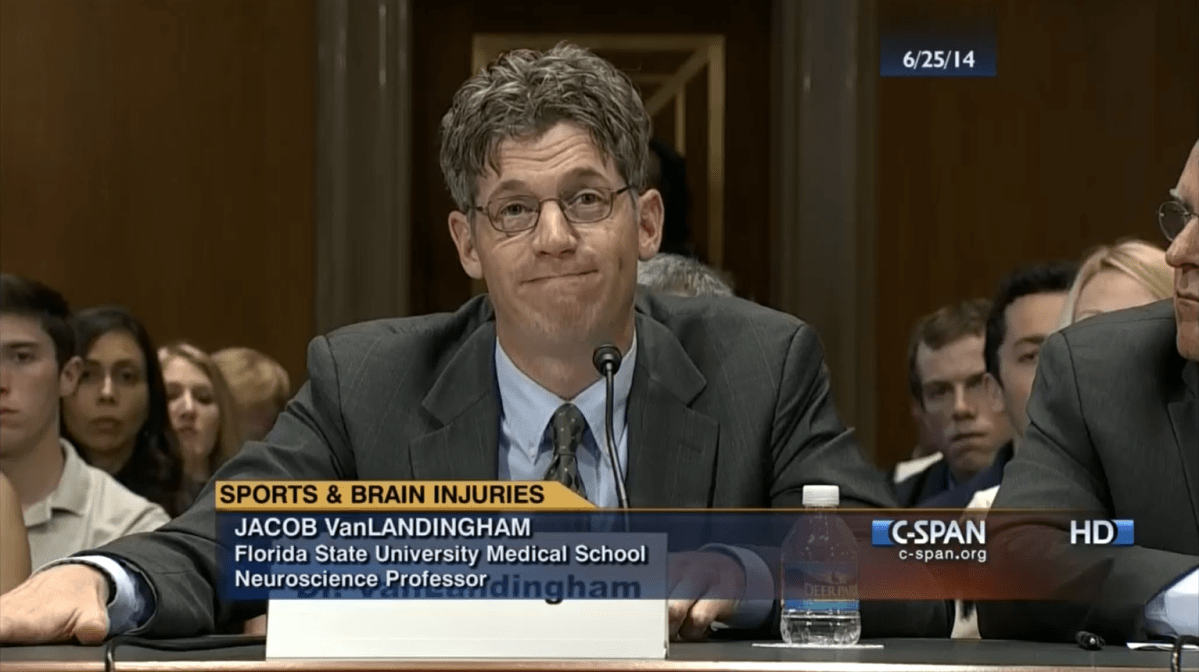
(MDHS also alleges that Favre participated in the funneling of $1.7 million in welfare money to Prevacus, to which New has pleaded guilty criminally, and that Favre is liable. In response, Favre’s attorneys argue, “All Favre is alleged to have done with respect to Prevacus is to have introduced VanLandingham to New … This is insufficient to state a claim that Favre agreed to join a conspiracy … if this conduct was sufficient to join a conspiracy, then MDHS could also add as co-conspirators Southern Miss Athletic Director Jon Gilbert for his role in introducing New to Favre and attending the meeting.”)
“Suddenly she said I don’t think I can do anymore,” Favre wrote to Vanlandingham, referring to New, according to “The Backchannel” texts. “So now I am looking at a big pay out.”
The same month, Steel Dynamics Foundation donated $25,000 towards Favre’s volleyball pledge. Steel Dynamics Foundation is the foundation associated with Steel Dynamics Inc., a Fort Wayne, Indiana-based company that has manufacturing sites in Mississippi and recently received $247 million in tax incentives from the state. The foundation’s website says its goal is to improve the quality of life and local economies in the communities where its employees work.
By September of 2019, Favre’s debt had apparently grown. “I have more shit going on not to mention a very likely 1.8 million note coming due that I thought was covered,” Favre texted Vanlandingham.
That month, Favre secured a meeting with Bryant and the new welfare director, Christopher Freeze, who replaced Davis. They discussed pushing additional grant funds to the volleyball project. After the meeting, Bryant encouraged Favre by text that “We are going to get there. … But we have to follow the law.”
Freeze told Mississippi Today he rejected the proposal and there’s been no evidence that any additional welfare money went to the project after this point.
The next month, Aaron Rodgers – the quarterback who replaced Favre at the Green Bay Packers, prompting a memorable feud in sports pop culture history – donated $10,000 to the facility, according to the Morrison email. Favre had also talked to Vanlandingham in 2019 about asking for Rodgers’ support with the pharmaceutical venture. Rodgers’ agent did not return emails or a call from Mississippi Today.
By early 2020, Favre was desperately trying to come up with the rest of the funding. According to the Morrison email, he then secured $500 from Howard Deneroff, executive producer of Westwood One Sports, an NFL broadcaster. Favre had asked Deneroff to donate in exchange for a sit-down interview on the network. Favre also collected $22,000 from the Jimmy A. Payne Foundation, the foundation of a USM alum and businessman, and $350,000 from Matt Helms, owner of a sports memorabilia store in south Mississippi.
But it wasn’t enough. Favre even attempted to involve the Mississippi Community College Board, incoming Gov. Tate Reeves and the Legislature.
Bryant texted then-USM President Rodney Bennett about Favre’s insistence.
“The bottom line is he personally guaranteed the project, and on his word and handshake we proceeded,” Bennett texted Bryant on Jan. 27, 2020, shortly after the outgoing governor left office. “It’s time for him to pay up – it really is just that simple.”
MDHS uses this text to substantiate its allegation that Favre committed the funds before the welfare payment, since the athletic foundation proceeded with the project by hiring architects to start drafting renderings of the building in July of 2017.
All of this together, MDHS alleges, “support the reasonable inference that Favre personally committed to guarantee the volleyball facility’s construction at the outset of the project.”
Favre’s attorneys push back: “MDHS takes this text message completely out of context—it clearly related to efforts by Favre to raise funds to meet his 2018 written commitment,” Favre’s recent reply states. “MDHS takes a giant and unsupported leap of faith in claiming that the text message related to some different, earlier commitment.”
On the day of the initial arrests in February of 2020, Morrison, the associate athletic director, sent Favre the email describing “the following gifts that have been applied towards your commitment to the Volleyball Facility.”
Asked about the timing of the email, the Favre spokesperson said, “it is purely coincidental.”
The indictment, which was made public that day, had named Prevacus and its affiliate PreSolMD, alleging that the News had embezzled welfare funds from their nonprofit to invest in the companies.
About a week later, Vanlandingham texted Favre, saying he wasn’t sure if one of their potential investors was going to follow through with his contribution “given this MS embezzlement shit.”
Vanlandingham asked the athlete to make another $50,000 donation so PreSolMD could begin developing what it called a “pregame cream” that it promised could prevent concussions.
“…I would but up to my eyeballs in vball debt,” Favre responded.
This article first appeared on Mississippi Today and is republished here under a Creative Commons license.
Mississippi Today
Mississippi prepares for another execution
The Mississippi Supreme Court has set the execution of a man who kidnapped and murdered a 20-year-old community college student in north Mississippi 30 years ago.
Charles Ray Crawford, 59, is set to be executed Oct. 15 at the Mississippi State Penitentiary at Parchman, after multiple requests by the attorney general’s office.
Eight justices joined the majority opinion to set the execution, concluding that Crawford has exhausted all state and federal legal remedies. Mississippi Supreme Court Justice T. Kenneth Griffis Jr. wrote the Friday opinion. Justice David Sullivan did not participate.
However, Kristy Noble with the Mississippi Office of Capital Post-Conviction Counsel released a statement saying it will file another appeal with the U.S. Supreme Court.
“”Mr. Crawford’s inexperienced trial counsel conceded his guilt to the jury — against Mr.
Crawford’s timely and repeated objections,” Noble said in the statement. “Mr. Crawford told his counsel to pursue a not guilty verdict. Counsel did just the opposite, which is precisely what the U.S. Supreme Court says counsel cannot do,” Noble said in the statement.
“A trial like Mr. Crawford’s – one where counsel concedes guilt over his client’s express wishes – is essentially no trial at all.”
Last fall, Crawford’s attorneys asked the court not to set an execution date because he hadn’t exhausted appeal efforts in federal court to challenge a rape conviction that is not tied to his death sentence. In June, the U.S. Supreme Court declined to take up Crawford’s case.
A similar delay occurred a decade ago, when the AG’s office asked the court to reset Crawford’s execution date, but that was denied because efforts to appeal his unrelated rape conviction were still pending.
After each unsuccessful filing, the attorney general’s office asked the Mississippi Supreme Court to set Crawford’s execution date.
On Friday, the court also denied Crawford’s third petition for post-conviction relief and a request for oral argument. It accepted the state’s motion to dismiss the petition. Seven justices concurred and Justice Leslie King concurred in result only. Again, Justice Sullivan did not participate.
Crawford was convicted and sentenced to death in Lafayette County for the 1993 rape and murder of North Mississippi Community College student Kristy Ray.
Days before he was set to go to trial on separate aggravated assault and rape charges, he kidnapped Ray from her parents’ Tippah County home, leaving ransom notes. Crawford took Ray to an abandoned barn where he stabbed her, and his DNA was found on her, indicating he sexually assaulted her, according to court records.
Crawford told police he had blackouts and only remembered parts of the crime, but not killing Ray. Later he admitted “he must of killed her” and led police to Ray’s body, according to court records.
At his 1994 trial he presented an insanity defense, including that he suffered from psychogenic amnesia – periods of time lapse without memory. Medical experts who provided rebuttal testimony said Crawford didn’t have psychogenic amnesia and didn’t show evidence of bipolar illness.
The last person executed in Mississippi was Richard Jordan in June, previously the state’s oldest and longest serving person on death row.
There are 36 people on death row, according to records from the Mississippi Department of Corrections.
Update 9/15/25: This story has been updated to include a response from the Mississippi Office of Capital Post-Conviction Counsel
This article first appeared on Mississippi Today and is republished here under a Creative Commons Attribution-NoDerivatives 4.0 International License.
The post Mississippi prepares for another execution appeared first on mississippitoday.org
Note: The following A.I. based commentary is not part of the original article, reproduced above, but is offered in the hopes that it will promote greater media literacy and critical thinking, by making any potential bias more visible to the reader –Staff Editor.
Political Bias Rating: Centrist
The article presents a factual and balanced account of the legal proceedings surrounding a scheduled execution in Mississippi. It includes perspectives from both the state’s attorney general’s office and the defense counsel, without using emotionally charged language or advocating for a particular political stance. The focus on legal details and court decisions reflects a neutral, informative approach typical of centrist reporting.
Mississippi Today
Presidents are taking longer to declare major natural disasters. For some, the wait is agonizing
TYLERTOWN — As an ominous storm approached Buddy Anthony’s one-story brick home, he took shelter in his new Ford F-250 pickup parked under a nearby carport.
Seconds later, a tornado tore apart Anthony’s home and damaged the truck while lifting it partly in the air. Anthony emerged unhurt. But he had to replace his vehicle with a used truck that became his home while waiting for President Donald Trump to issue a major disaster declaration so that federal money would be freed for individuals reeling from loss. That took weeks.
“You wake up in the truck and look out the windshield and see nothing. That’s hard. That’s hard to swallow,” Anthony said.
Disaster survivors are having to wait longer to get aid from the federal government, according to a new Associated Press analysis of decades of data. On average, it took less than two weeks for a governor’s request for a presidential disaster declaration to be granted in the 1990s and early 2000s. That rose to about three weeks during the past decade under presidents from both major parties. It’s taking more than a month, on average, during Trump’s current term, the AP found.
The delays mean individuals must wait to receive federal aid for daily living expenses, temporary lodging and home repairs. Delays in disaster declarations also can hamper recovery efforts by local officials uncertain whether they will receive federal reimbursement for cleaning up debris and rebuilding infrastructure. The AP collaborated with Mississippi Today and Mississippi Free Press on the effects of these delays for this report.
“The message that I get in the delay, particularly for the individual assistance, is that the federal government has turned its back on its own people,” said Bob Griffin, dean of the College of Emergency Preparedness, Homeland Security and Cybersecurity at the University at Albany in New York. “It’s a fundamental shift in the position of this country.”
The wait for disaster aid has grown as Trump remakes government
The Federal Emergency Management Agency often consults immediately with communities to coordinate their initial disaster response. But direct payments to individuals, nonprofits and local governments must wait for a major disaster declaration from the president, who first must receive a request from a state, territory or tribe. Major disaster declarations are intended only for the most damaging events that are beyond the resources of states and local governments.
Trump has approved more than two dozen major disaster declarations since taking office in January, with an average wait of almost 34 days after a request. That ranged from a one-day turnaround after July’s deadly flash flooding in Texas to a 67-day wait after a request for aid because of a Michigan ice storm. The average wait is up from a 24-day delay during his first term and is nearly four times as long as the average for former Republican President George H.W. Bush, whose term from 1989-1993 coincided with the implementation of a new federal law setting parameters for disaster determinations.
The delays have grown over time, regardless of the party in power. Former Democratic President Joe Biden, in his last year in office, averaged 26 days to declare major disasters — longer than any year under former Democratic President Barack Obama.

FEMA did not respond to the AP’s questions about what factors are contributing to the trend.
Others familiar with FEMA noted that its process for assessing and documenting natural disasters has become more complex over time. Disasters have also become more frequent and intense because of climate change, which is mostly caused by the burning of fuels such as gas, coal and oil.
The wait for disaster declarations has spiked as Trump’s administration undertakes an ambitious makeover of the federal government that has shed thousands of workers and reexamined the role of FEMA. A recently published letter from current and former FEMA employees warned the cuts could become debilitating if faced with a large-enough disaster. The letter also lamented that the Trump administration has stopped maintaining or removed long-term planning tools focused on extreme weather and disasters.
Shortly after taking office, Trump floated the idea of “getting rid” of FEMA, asserting: “It’s very bureaucratic, and it’s very slow.”
FEMA’s acting chief suggested more recently that states should shoulder more responsibility for disaster recovery, though FEMA thus far has continued to cover three-fourths of the costs of public assistance to local governments, as required under federal law. FEMA pays the full cost of its individual assistance.
Former FEMA Administrator Pete Gaynor, who served during Trump’s first term, said the delay in issuing major disaster declarations likely is related to a renewed focus on making sure the federal government isn’t paying for things state and local governments could handle.
“I think they’re probably giving those requests more scrutiny,” Gaynor said. “And I think it’s probably the right thing to do, because I think the (disaster) declaration process has become the ‘easy button’ for states.”
The Associated Press on Monday received a statement from White House spokeswoman Abigail Jackson in response to a question about why it is taking longer to issue major natural disaster declarations:
“President Trump provides a more thorough review of disaster declaration requests than any Administration has before him. Gone are the days of rubber stamping FEMA recommendations – that’s not a bug, that’s a feature. Under prior Administrations, FEMA’s outsized role created a bloated bureaucracy that disincentivized state investment in their own resilience. President Trump is committed to right-sizing the Federal government while empowering state and local governments by enabling them to better understand, plan for, and ultimately address the needs of their citizens. The Trump Administration has expeditiously provided assistance to disasters while ensuring taxpayer dollars are spent wisely to supplement state actions, not replace them.”

In Mississippi, frustration festered during wait for aid
The tornado that struck Anthony’s home in rural Tylertown on March 15 packed winds up to 140 mph. It was part of a powerful system that wrecked homes, businesses and lives across multiple states.
Mississippi’s governor requested a federal disaster declaration on April 1. Trump granted that request 50 days later, on May 21, while approving aid for both individuals and public entities.
On that same day, Trump also approved eight other major disaster declarations for storms, floods or fires in seven other states. In most cases, more than a month had passed since the request and about two months since the date of those disasters.
If a presidential declaration and federal money had come sooner, Anthony said he wouldn’t have needed to spend weeks sleeping in a truck before he could afford to rent the trailer where he is now living. His house was uninsured, Anthony said, and FEMA eventually gave him $30,000.
In nearby Jayess in Lawrence County, Dana Grimes had insurance but not enough to cover the full value of her damaged home. After the eventual federal declaration, Grimes said FEMA provided about $750 for emergency expenses, but she is now waiting for the agency to determine whether she can receive more.

“We couldn’t figure out why the president took so long to help people in this country,” Grimes said. “I just want to tie up strings and move on. But FEMA — I’m still fooling with FEMA.”
Jonathan Young said he gave up on applying for FEMA aid after the Tylertown tornado killed his 7-year-old son and destroyed their home. The process seemed too difficult, and federal officials wanted paperwork he didn’t have, Young said. He made ends meet by working for those cleaning up from the storm.
“It’s a therapy for me,” Young said, “to pick up the debris that took my son away from me.”
Historically, presidential disaster declarations containing individual assistance have been approved more quickly than those providing assistance only to public entities, according to the AP’s analysis. That remains the case under Trump, though declarations for both types are taking longer.
About half the major disaster declarations approved by Trump this year have included individual assistance.
Some people whose homes are damaged turn to shelters hosted by churches or local nonprofit organizations in the initial chaotic days after a disaster. Others stay with friends or family or go to a hotel, if they can afford it.
But some insist on staying in damaged homes, even if they are unsafe, said Chris Smith, who administered FEMA’s individual assistance division under three presidents from 2015-2022. If homes aren’t repaired properly, mold can grow, compounding the recovery challenges.

That’s why it’s critical for FEMA’s individual assistance to get approved quickly — ideally, within two weeks of a disaster, said Smith, who’s now a disaster consultant for governments and companies.
“You want to keep the people where they are living. You want to ensure those communities are going to continue to be viable and recover,” Smith said. “And the earlier that individual assistance can be delivered … the earlier recovery can start.”
In the periods waiting for declarations, the pressure falls on local officials and volunteers to care for victims and distribute supplies.
In Walthall County, where Tylertown is, insurance agent Les Lampton remembered watching the weather news as the first tornado missed his house by just an eighth of a mile. Lampton, who moonlights as a volunteer firefighter, navigated the collapsed trees in his yard and jumped into action. About 45 minutes later, the second tornado hit just a mile away.
“It was just chaos from there on out,” Lampton said.
Walthall County, with a population of about 14,000, hasn’t had a working tornado siren in about 30 years, Lampton said. He added there isn’t a public safe room in the area, although a lot of residents have ones in their home.
Rural areas with limited resources are hit hard by delays in receiving funds through FEMA’s public assistance program, which, unlike individual assistance, only reimburses local entities after their bills are paid. Long waits can stoke uncertainty and lead cost-conscious local officials to pause or scale-back their recovery efforts.

In Walthall County, officials initially spent about $700,000 cleaning up debris, then suspended the cleanup for more than a month because they couldn’t afford to spend more without assurance they would receive federal reimbursement, said county emergency manager Royce McKee. Meanwhile, rubble from splintered trees and shattered homes remained piled along the roadside, creating unsafe obstacles for motorists and habitat for snakes and rodents.
When it received the federal declaration, Walthall County took out a multimillion-dollar loan to pay contractors to resume the cleanup.
“We’re going to pay interest and pay that money back until FEMA pays us,” said Byran Martin, an elected county supervisor. “We’re hopeful that we’ll get some money by the first of the year, but people are telling us that it could be [longer].”
Lampton, who took after his father when he joined the volunteer firefighters 40 years ago, lauded the support of outside groups such as Cajun Navy, Eight Days of Hope, Samaritan’s Purse and others. That’s not to mention the neighbors who brought their own skid steers and power saws to help clear trees and other debris, he added.
“That’s the only thing that got us through this storm, neighbors helping neighbors,” Lampton said. “If we waited on the government, we were going to be in bad shape.”
Lieb reported from Jefferson City, Missouri, and Wildeman from Hartford, Connecticut.
Update 98/25: This story has been updated to include a White House statement released after publication.
This article first appeared on Mississippi Today and is republished here under a Creative Commons Attribution-NoDerivatives 4.0 International License.
The post Presidents are taking longer to declare major natural disasters. For some, the wait is agonizing appeared first on mississippitoday.org
Note: The following A.I. based commentary is not part of the original article, reproduced above, but is offered in the hopes that it will promote greater media literacy and critical thinking, by making any potential bias more visible to the reader –Staff Editor.
Political Bias Rating: Center-Left
This article presents a critical view of the Trump administration’s handling of disaster declarations, highlighting delays and their negative impacts on affected individuals and communities. It emphasizes concerns about government downsizing and reduced federal support, themes often associated with center-left perspectives that favor robust government intervention and social safety nets. However, it also includes statements from Trump administration officials defending their approach, providing some balance. Overall, the tone and framing lean slightly left of center without being overtly partisan.
Mississippi Today
Northeast Mississippi speaker and worm farmer played key role in Coast recovery after Hurricane Katrina
The 20th anniversary of Hurricane Katrina slamming the Mississippi Gulf Coast has come and gone, rightfully garnering considerable media attention.
But still undercovered in the 20th anniversary saga of the storm that made landfall on Aug. 29, 2005, and caused unprecedented destruction is the role that a worm farmer from northeast Mississippi played in helping to revitalize the Coast.
House Speaker Billy McCoy, who died in 2019, was a worm farmer from the Prentiss, not Alcorn County, side of Rienzi — about as far away from the Gulf Coast as one could be in Mississippi.
McCoy grew other crops, but a staple of his operations was worm farming.
Early after the storm, the House speaker made a point of touring the Coast and visiting as many of the House members who lived on the Coast as he could to check on them.
But it was his action in the forum he loved the most — the Mississippi House — that is credited with being key to the Coast’s recovery.
Gov. Haley Barbour had called a special session about a month after the storm to take up multiple issues related to Katrina and the Gulf Coast’s survival and revitalization. The issue that received the most attention was Barbour’s proposal to remove the requirement that the casinos on the Coast be floating in the Mississippi Sound.
Katrina wreaked havoc on the floating casinos, and many operators said they would not rebuild if their casinos had to be in the Gulf waters. That was a crucial issue since the casinos were a major economic engine on the Coast, employing an estimated 30,000 in direct and indirect jobs.
It is difficult to fathom now the controversy surrounding Barbour’s proposal to allow the casinos to locate on land next to the water. Mississippi’s casino industry that was birthed with the early 1990s legislation was still new and controversial.
Various religious groups and others had continued to fight and oppose the casino industry and had made opposition to the expansion of gambling a priority.
Opposition to casinos and expansion of casinos was believed to be especially strong in rural areas, like those found in McCoy’s beloved northeast Mississippi. It was many of those rural areas that were the homes to rural white Democrats — now all but extinct in the Legislature but at the time still a force in the House.
So, voting in favor of casino expansion had the potential of being costly for what was McCoy’s base of power: the rural white Democrats.
Couple that with the fact that the Democratic-controlled House had been at odds with the Republican Barbour on multiple issues ranging from education funding to health care since Barbour was inaugurated in January 2004.
Barbour set records for the number of special sessions called by the governor. Those special sessions often were called to try to force the Democratic-controlled House to pass legislation it killed during the regular session.
The September 2005 special session was Barbour’s fifth of the year. For context, current Gov. Tate Reeves has called four in his nearly six years as governor.
There was little reason to expect McCoy to do Barbour’s bidding and lead the effort in the Legislature to pass his most controversial proposal: expanding casino gambling.
But when Barbour ally Lt. Gov. Amy Tuck, who presided over the Senate, refused to take up the controversial bill, Barbour was forced to turn to McCoy.
The former governor wrote about the circumstances in an essay he penned on the 20th anniversary of Hurricane Katrina for Mississippi Today Ideas.
“The Senate leadership, all Republicans, did not want to go first in passing the onshore casino law,” Barbour wrote. “So, I had to ask Speaker McCoy to allow it to come to the House floor and pass. He realized he should put the Coast and the state’s interests first. He did so, and the bill passed 61-53, with McCoy voting no.
“I will always admire Speaker McCoy, often my nemesis, for his integrity in putting the state first.”
Incidentally, former Rep. Bill Miles of Fulton, also in northeast Mississippi, was tasked by McCoy with counting, not whipping votes, to see if there was enough support in the House to pass the proposal. Not soon before the key vote, Miles said years later, he went to McCoy and told him there were more than enough votes to pass the legislation so he was voting no and broached the idea of the speaker also voting no.
It is likely that McCoy would have voted for the bill if his vote was needed.
Despite his no vote, the Biloxi Sun Herald newspaper ran a large photo of McCoy and hailed the Rienzi worm farmer as a hero for the Mississippi Gulf Coast.
This article first appeared on Mississippi Today and is republished here under a Creative Commons Attribution-NoDerivatives 4.0 International License.
The post Northeast Mississippi speaker and worm farmer played key role in Coast recovery after Hurricane Katrina appeared first on mississippitoday.org
Note: The following A.I. based commentary is not part of the original article, reproduced above, but is offered in the hopes that it will promote greater media literacy and critical thinking, by making any potential bias more visible to the reader –Staff Editor.
Political Bias Rating: Centrist
The article presents a factual and balanced account of the political dynamics surrounding Hurricane Katrina recovery efforts in Mississippi, focusing on bipartisan cooperation between Democratic and Republican leaders. It highlights the complexities of legislative decisions without overtly favoring one party or ideology, reflecting a neutral and informative tone typical of centrist reporting.
-
News from the South - North Carolina News Feed6 days ago
What we know about Charlie Kirk shooting suspect, how he was caught
-
News from the South - North Carolina News Feed7 days ago
Federal hate crime charge sought in Charlotte stabbing | North Carolina
-
Our Mississippi Home5 days ago
Screech Owls – Small but Cute
-
News from the South - Arkansas News Feed6 days ago
NW Arkansas Championship expected to bring money to Rogers
-
News from the South - North Carolina News Feed7 days ago
Under pressure, some immigrants are leaving American dreams behind
-
Mississippi News Video7 days ago
Mississippi Science Fest showcases STEAM events, activities
-
News from the South - Florida News Feed7 days ago
CBS Miami highlights free mammogram program with mobile mammovan
-
News from the South - Tennessee News Feed6 days ago
What to know about Trump’s National Guard deployment to Memphis













































